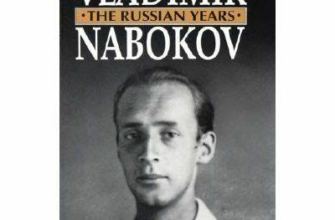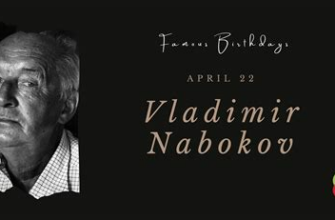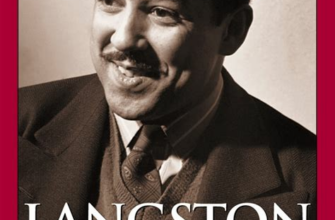Within the realm of contemporary filmmaking, there exists a singular punctuation mark, an indomitable force that effortlessly blurs the boundaries between reality and art. This enigmatic narrative craftsman, whose name resonates with both intrigue and adulation, has left an indelible mark upon cinema as we know it. As we embark on a compelling journey through the illustrious biography of Quentin Tarantino, we unravel the complexities that lie beneath his extraordinary cinematic tapestry.
With an unmistakable auteur's touch, Tarantino's body of work transcends the confines of conventional storytelling. Each frame, a meticulously crafted canvas, showcases his astute attention to detail, audacious narrative structures, and a relentless pursuit of emotional transcendence. From explosive chronicles of revenge to introspective character studies, Tarantino has enthralled audiences with his distinct vision that seamlessly merges stylized violence, relentless dialogue, and a fervent love for pop culture.
Emerging as an enfant terrible of cinema in the 1990s, Tarantino's meteoric rise to prominence reverberated across the industry, heralding a new era of unconventional storytelling. With his directorial debut, Tarantino's idiosyncratic voice shattered the norms, captivating and polarizing audiences in equal measure. Through masterpieces such as "Pulp Fiction," "Reservoir Dogs," and "Kill Bill," he carved out a unique space within the cinematic landscape, marked by fearless exploration and a disdain for artistic orthodoxy.
Yet, Tarantino's journey is not merely confined to his directorial prowess; his roles as a screenwriter, actor, and producer intertwine in a symphony of creative versatility. Collaborating with some of the most influential figures in the industry, he has left an indelible impression on cinema, fueling the imagination of aspiring filmmakers and transcending the boundaries of genre and expectation.
Quentin Tarantino: From Video Store Clerk to Hollywood Legend

In this section, we will delve into the remarkable journey of Quentin Tarantino, tracing his rise to stardom from humble beginnings as a video store clerk. This captivating narrative explores his transformation from an ordinary individual with a passion for films into a legendary figure in the Hollywood industry.
A Journey Shaped by Passion:
Quentin Tarantino's remarkable journey in the film industry is a testament to the power of unwavering passion and dedication. Born with an innate love for cinema, Tarantino's journey began working as a video store clerk, where he immersed himself in a world of movie tapes and film knowledge. This early exposure not only fueled his enthusiasm but also honed his understanding of storytelling and cinematic techniques.
Finding His Signature Style:
As Tarantino continued his exploration of films, his unique signature style started to emerge. Known for his nonlinear narratives, sharp dialogues, and meticulous attention to detail, Tarantino's films captivated audiences worldwide. His mastery in blending different genres, from crime thrillers to spaghetti westerns, created a distinct cinematic language that resonated with both critics and viewers alike.
Achieving Critical and Commercial Success:
Quentin Tarantino's talent did not go unnoticed within the industry, as he quickly gained recognition and acclaim for his groundbreaking works. With movies like "Pulp Fiction" and "Reservoir Dogs," Tarantino's genius was acknowledged with numerous awards, including Oscars and Golden Globes. His ability to push boundaries and challenge traditional narratives boldly solidified his position as a Hollywood legend.
Unconventional Storytelling and Cultural Impact:
Quentin Tarantino's impact extends beyond the cinema screen, as his films have had a profound cultural influence. His unapologetic exploration of themes such as violence, revenge, and redemption has stirred discussions and debates, sparking conversations on morality, ethics, and societal norms. Through his unconventional storytelling and thought-provoking narratives, Tarantino continues to push the boundaries of cinematic art.
A Shining Legacy:
Today, Quentin Tarantino stands as an iconic figure in the film industry, leaving an indelible mark through his innovative and daring approach to storytelling. From his early days as a video store clerk to his rise as a renowned director, Tarantino's journey serves as an inspiration for aspiring filmmakers worldwide, reminding them that passion, determination, and a unique artistic vision can pave the way to greatness.
From Video Store Clerk to Hollywood Legend: Quentin Tarantino's Unconventional Path to Success
Embark on a fascinating exploration into Quentin Tarantino's extraordinary rise to prominence in the film industry, which began with his humble beginnings as a video store clerk. This unique journey paved the way for his legendary career in Hollywood, as he defied traditional norms and established himself as one of the most influential and iconic filmmakers of our time.
Quentin Tarantino's path to success is a testament to passion, determination, and a relentless pursuit of his creative vision. Having started his career in a video rental store, he immersed himself in a world of cinema, soaking up a diverse range of films that would later serve as inspiration for his own unique storytelling style. By honing his craft behind the scenes, Tarantino developed a deep understanding of the intricacies and nuances that make a film truly captivating.
What sets Tarantino apart from other filmmakers is his fearless approach to storytelling. He possesses an unparalleled ability to blend various genres, infusing them with his own signature style and creating a cinematic experience that is both visually stunning and intellectually stimulating. Throughout his career, Tarantino has fearlessly pushed the boundaries of conventional filmmaking, challenging societal norms and provoking thought-provoking discussions on controversial topics.
From his early masterpiece "Reservoir Dogs" to the critically acclaimed "Pulp Fiction" and beyond, Quentin Tarantino has consistently delivered groundbreaking films that have captivated audiences worldwide. His distinctive use of non-linear narrative structure, memorable characters, and expertly choreographed action sequences have become synonymous with his name.
Today, Quentin Tarantino's influence on the film industry cannot be overstated. His uncompromising commitment to his artistic vision has earned him numerous accolades, including multiple Academy Awards, and his films continue to leave an indelible mark on popular culture. Through his evolution from a video store clerk to an internationally celebrated filmmaker, Tarantino has undeniably shaped the cinematic landscape, forever cementing his place among the greatest legends in Hollywood history.
Unleashing Creativity: Quentin Tarantino's Unique Filmmaking Style

Delving into the captivating world of Quentin Tarantino's oeuvre, one is immediately struck by the unparalleled creativity that defines his filmmaking style. With an innovative approach that challenges conventional storytelling techniques, Tarantino has carved out a distinctive place in the realm of cinema.
At the heart of Tarantino's unique filmmaking style lies his uncanny ability to seamlessly blend different genres, creating a visually mesmerizing and emotionally gripping experience for the audience. The juxtaposition of violence and dark humor, romance and tragedy, brings forth a sense of unpredictability that keeps viewers on the edge of their seats.
Notably, Tarantino's unconventional use of nonlinear storytelling adds another layer of depth to his films. By rearranging chronological events and interweaving different narratives, he emphasizes the complexity of human experiences and challenges the traditional notion of a linear narrative structure. This technique not only enhances the overall storytelling but also invites the audience to actively engage with the film, piecing together the puzzle-like narrative in their own way.
Moreover, Tarantino's meticulous attention to detail is evident in every frame of his films. Each carefully crafted shot speaks volumes about his dedication to the art form, as well as his passion for immersing the audience in a visually and audibly rich cinematic experience. From the choice of camera angles to the distinctive use of music, every element contributes to the overall atmosphere and authenticity of his work.
Furthermore, Tarantino's penchant for dialogues that are both witty and thought-provoking adds yet another layer of uniqueness to his films. His characters engage in lengthy conversations that reveal the depth of their personalities and provide a platform for exploring complex themes and ideas. This emphasis on dialogue, often accompanied by sharp delivery and memorable one-liners, has become a hallmark of Tarantino's cinematic language.
In conclusion, Quentin Tarantino's filmmaking style is undeniably one-of-a-kind. With his fearless experimentation, unconventional storytelling techniques, meticulous attention to detail, and masterful use of dialogue, he continues to push the boundaries of cinematic artistry. His films not only entertain but also leave a lasting impact on viewers, cementing his status as a creative genius in the world of cinema.
Quentin Tarantino's Distinctive Storytelling Techniques and Influence on the World of Cinema
Delving into the artistic realm of Quentin Tarantino unveils a captivating exploration of his unique approach to storytelling and the profound impact he has made on the world of cinema. Tarantino's narrative style is characterized by his masterful command of dialogue, his distinct visual aesthetics, and his ability to seamlessly blend genres, resulting in films that are both immersive and thought-provoking. Through his innovative techniques, Tarantino has redefined the boundaries of filmmaking and left an indelible mark on the industry.
Dialogue as a Narrative Device: Tarantino's films are renowned for their sharp and witty dialogues, often filled with pop culture references, memorable one-liners, and compelling exchanges between characters. His characters engage in lengthy conversations that not only serve to advance the plot but also provide insights into their motivations and psychological depths. This distinctive use of dialogue creates a rich tapestry of storytelling that engages and captivates audiences.
Aesthetic Visual Style: Tarantino's visual style is legendary, characterized by his meticulous attention to detail, iconic camera angles, and vibrant use of colors. Each frame is painstakingly crafted to create a visually stunning experience that complements and enhances the narrative. His signature long takes, tracking shots, and dynamic camera movements add a layer of dynamism to his films, immersing audiences in a world that feels both familiar and surreal.
Genre Blending: One of Tarantino's greatest strengths lies in his ability to blend genres seamlessly. He expertly combines elements of crime, western, martial arts, and exploitation genres, creating a unique cinematic experience that defies categorization. This genre fusion allows Tarantino to experiment with narrative structures, subvert audience expectations, and deliver narratives that are unpredictable and compelling.
Impact on the World of Cinema: Tarantino's influence on the world of cinema cannot be overstated. His films have inspired a generation of filmmakers and reshaped the way storytelling is approached in the industry. Tarantino's unapologetic vision and willingness to take risks have challenged traditional storytelling conventions, paving the way for a new wave of bold and innovative cinema. His contributions have left an enduring legacy, making him one of the most iconic and influential filmmakers of our time.
In conclusion, Quentin Tarantino's distinctive storytelling techniques, encompassing his masterful use of dialogue, aesthetic visual style, genre blending, and profound impact on the world of cinema, have cemented his status as an iconic filmmaker. His artistic vision and boundary-pushing narratives continue to captivate audiences and inspire future generations of storytellers.
Breaking Boundaries: Quentin Tarantino's Controversial Films

In this section, we will explore the bold and daring nature of Quentin Tarantino's movie creations, which often push the boundaries of conventional filmmaking. Tarantino's films have stirred up debates and sparked controversy due to their unique storytelling style and intense subject matter.
One distinguishing characteristic of Tarantino's films is his unapologetic approach to violence. He intricately weaves together elements of action, thriller, and black comedy to create cinematic experiences that leave audiences on the edge of their seats. His use of explicit violence has been both praised for its artistic merit and condemned for its graphic nature.
Another controversial aspect of Tarantino's filmmaking is his portrayal of sensitive topics such as race, gender, and historical events. He fearlessly tackles these subjects with a blend of satire, dark humor, and social commentary, often challenging societal norms and spotlighting uncomfortable truths. Some view his approach as thought-provoking and necessary, while others argue it is insensitive and inappropriate.
Furthermore, Tarantino is known for his nonlinear storytelling techniques, which can sometimes confuse or divide audiences. He skillfully constructs narratives that jump back and forth in time, encouraging viewers to piece together the puzzle-like structure of his films. This unconventional approach adds another layer of complexity to his work but can also polarize opinions.
It is important to note that while Tarantino's films may be controversial, they have also shaped the landscape of modern cinema. Many consider his brand of filmmaking as groundbreaking, as he has redefined genres and challenged traditional storytelling conventions. Regardless of one's opinion, Tarantino's ability to provoke discussion and spark controversy is a testament to his artistic vision and audacity.
| Controversial Aspects | Reception |
|---|---|
| Unapologetic violence | Praised for artistic merit but condemned for graphic nature |
| Portrayal of sensitive topics | Viewed as thought-provoking or insensitive and inappropriate |
| Nonlinear storytelling | Divides audiences but adds complexity and redefines conventions |
Diving into Quentin Tarantino's Controversial Works: Exploring Themes and Impact
Embark on a captivating exploration of the filmography of Quentin Tarantino, a renowned filmmaker whose works have sparked both admiration and controversy. Delve into the compelling themes that permeate his movies and examine the profound impact they have had on audiences and critics alike.
Exploring Provocative Themes: Tarantino's films are characterized by their audacious exploration of provocative themes, challenging societal norms, and pushing boundaries. His unique blend of violence, dark humor, and intelligent storytelling captivates viewers, immersing them in thought-provoking narratives that tackle complex issues such as revenge, morality, and justice. Through his films, Tarantino not only entertains but also engenders discussions on controversial topics, provoking reflection on the human condition.
Shaping Audiences and Critics' Perspectives: Tarantino's works have left an indelible mark on both audiences and critics, eliciting diverse responses and opinions. While some applaud his unparalleled vision and storytelling techniques, others criticize the excessive violence and controversial portrayals. Regardless of viewers' perspectives, Tarantino's ability to challenge, provoke, and captivate is undeniable. His films have prompted conversations, debates, and reinterpretations, pushing the boundaries of cinematic artistry and inspiring a new wave of filmmakers.
The Cultural Impact: Tarantino's films have had a profound cultural impact, permeating popular culture and influencing various art forms. From introducing iconic and memorable characters like Vincent Vega and Jules Winnfield in "Pulp Fiction" to revitalizing interest in genre-blending films with "Kill Bill," Tarantino has redefined the cinematic landscape. His distinctive style, marked by non-linear storytelling, eclectic soundtracks, and homage to cult classics, has become synonymous with his name and continues to shape the industry for future generations.
In conclusion, exploring Quentin Tarantino's controversial works allows us to delve into the complex themes he tackles and understand the significant impact they have had on audiences and critics. Tarantino's ability to push boundaries and challenge societal norms make him an influential and polarizing figure in the world of filmmaking.
Quentin Tarantino's Musical Passion in Filmmaking

Music has always held a significant place in Quentin Tarantino's films, providing a unique and integral element to his storytelling. The acclaimed filmmaker's deep appreciation for music extends beyond its mere presence in his movies, as he masterfully utilizes various genres and tracks to evoke emotions, emphasize themes, and enhance the overall cinematic experience.
Throughout his career, Tarantino has drawn inspiration from a diverse range of musical styles, immersing audiences in a nostalgia-filled journey through different eras and cultures. From the iconic surf rock tunes of "Pulp Fiction" to the soulful melodies of "Jackie Brown" and the 70s funk and R&B tracks in "Reservoir Dogs," the director carefully curates soundtracks that become an inseparable part of his films' identities.
The ingenious integration of music into Tarantino's narratives goes beyond mere background accompaniment. It intertwines with the plot, characters, and even becomes a character in itself. Each song seems intentionally selected to reflect the mood, atmosphere, and intensity of the scenes it accompanies, amplifying the impact of Tarantino's storytelling.
Whether it's using an upbeat pop song to contrast a violent sequence, employing a haunting melody to heighten suspense, or employing a familiar track to trigger a sense of familiarity and nostalgia, Tarantino's musical choices demonstrate his deep understanding of the emotional power that music can bring to the cinematic experience.
Furthermore, Tarantino's passion for music extends beyond the films themselves. He has often spoken about his love for vinyl records, stating that he handpicks each song for his movies from his extensive personal collection. This meticulous attention to detail showcases his dedication and commitment to creating a unique auditory experience for his audience.
In conclusion, Quentin Tarantino's profound passion for music in film is evident throughout his body of work. Through the careful selection and integration of diverse musical styles, he elevates the emotional impact of his storytelling, creating a truly immersive and unforgettable cinematic experience for audiences worldwide.
Discovering the Impact of Music in Quentin Tarantino's Films
Delve into the captivating world of Quentin Tarantino's movies and explore the essential role that music plays in crafting his unique storytelling experience. Through the artful integration of music, Tarantino elevates his narratives, creating a multi-sensory journey for the audience.
In Tarantino's cinematic universe, music serves as more than just background noise or a mood-setting tool. It becomes a character itself, intertwining with the plot, enhancing the emotions of the scenes, and adding depth to the characters' development. From the upbeat sounds of rock and roll to the soulful melodies of classic tunes, every musical choice carefully selected by Tarantino contributes to the overall narrative vision.
By masterfully combining a diverse array of musical genres and eras, Tarantino creates a sense of timelessness in his films. He seamlessly blends modern tunes with iconic songs from the past, bridging generational gaps and preserving the cultural heritage of music. This fusion of musical elements not only provides a rich backdrop for the stories but also becomes a reflection of the characters' personalities, tastes, and motivations.
Furthermore, Tarantino's meticulous attention to detail can be seen in the way he choreographs scenes with music. Whether it's a thrilling action sequence or an intimate dialogue, the carefully selected soundtrack amplifies the intensity and emotional resonance of the moment. The use of specific songs at pivotal moments becomes a powerful storytelling device, leaving a lasting impact on the viewer.
Through his innovative use of music, Quentin Tarantino has established himself as a true auteur, leaving an indelible mark on the world of filmmaking. His ability to seamlessly merge music with storytelling not only enhances the cinematic experience but also showcases his distinctive style and artistic vision.
Collaborative Genius: Quentin Tarantino's Working Relationships

Quentin Tarantino's creative brilliance goes beyond his exceptional filmmaking skills; it also lies in his ability to form fruitful collaborations with various talented individuals in the industry. These partnerships have been instrumental in shaping his unique cinematic vision, helping him bring his captivating stories to life on the big screen.
Throughout his career, Tarantino has surrounded himself with a diverse array of actors, screenwriters, producers, and technicians, each contributing their own expertise and artistic input. The mutual respect and trust that he establishes with his collaborators foster an environment of intense creativity, where ideas flow freely and boundaries are pushed.
One of the most notable relationships in Tarantino's career has been with actor Samuel L. Jackson, who has appeared in numerous Tarantino films, delivering unforgettable performances that have become iconic in their own right. The director's collaboration with Jackson has not only produced remarkable on-screen chemistry but also enabled the exploration of complex characters and themes.
In addition to actors, Tarantino has also formed lasting creative partnerships with screenwriters like Roger Avary, whose collaboration on "Pulp Fiction" resulted in an Oscar-winning script. These collaborations exemplify Tarantino's ability to combine his own distinct storytelling voice with the unique perspectives of his collaborators, resulting in groundbreaking narratives that captivate audiences worldwide.
Tarantino's collaborative genius extends beyond the camera as well. His relationships with talented producers, such as Lawrence Bender and Harvey Weinstein, have played a crucial role in securing the necessary financial resources and support to bring his ambitious projects to fruition. These partnerships have allowed Tarantino to maintain his creative autonomy while also benefiting from the knowledge and experience of seasoned industry professionals.
As a result of his collaborative approach, Tarantino has created a body of work that pushes the boundaries of cinema, blending genres, experimenting with narrative structures, and challenging societal norms. His working relationships have not only shaped his own career but have also helped shape the careers of those he collaborates with, fostering a creative ecosystem that continues to inspire and influence filmmakers around the world.
FAQ
What is Quentin Tarantino known for in the film industry?
Quentin Tarantino is known for his unique directing style, characterized by nonlinear storytelling, sharp dialogue, and a blend of various genres. He has gained a reputation for creating highly stylized and violent films with memorable characters and pop culture references.
How did Quentin Tarantino start his filmmaking career?
Quentin Tarantino started his filmmaking career by working in a video rental store, where he immersed himself in a wide variety of films. He wrote scripts during this time and managed to grab attention with his screenplay for "Reservoir Dogs", which led to his directorial debut in 1992.
Has Quentin Tarantino won any awards for his work?
Yes, Quentin Tarantino has been honored with numerous awards throughout his career. Some of his notable achievements include multiple Academy Awards, Golden Globe Awards, BAFTA Awards, and Palme d'Or at the Cannes Film Festival. His films have received critical acclaim and recognition worldwide.



